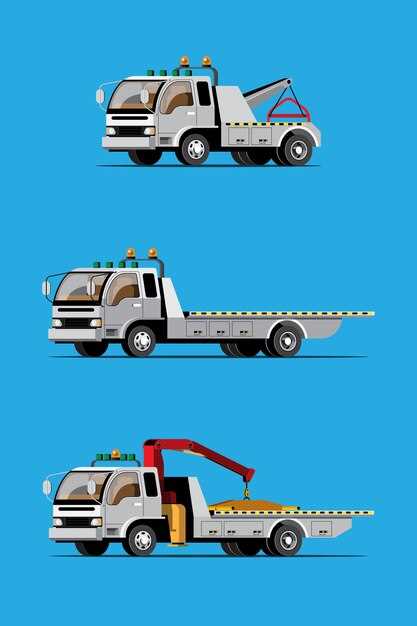
As we step into 2024, the demand for reliable and powerful trucks continues to rise, especially for those who require heavy towing capabilities. Whether you are a contractor, an outdoor enthusiast, or simply need a dependable vehicle for daily tasks, choosing the right truck for towing is crucial. The latest models on the market are not only equipped with enhanced towing capacities but also boast advanced technology and improved fuel efficiency.
In this article, we will explore the top trucks that stand out in 2024 for their towing capabilities. From robust engines to innovative towing technologies, these vehicles offer the performance and reliability you need for transporting trailers, boats, or heavy equipment. We will also highlight key features that make these trucks a great choice for both work and recreation, ensuring that you have the right tool for any job.
When selecting a truck for towing, factors such as payload capacity, engine specifications, and towing technology are essential to consider. Additionally, comfort and safety features can significantly enhance your driving experience during long trips. Join us as we delve into the best options available this year that combine power, performance, and practicality, ensuring you can tow with confidence.
Best Diesel Trucks for Heavy-Duty Towing
When it comes to heavy-duty towing, diesel trucks are the go-to choice for power and reliability. In 2024, several models stand out for their exceptional towing capacities, performance, and features that make them ideal for heavy-duty tasks.
-
Ram 3500
The Ram 3500 is renowned for its exceptional towing capabilities, offering up to 37,100 pounds when properly equipped. The available 6.7-liter Cummins inline-six turbo-diesel engine delivers remarkable torque, ensuring you can handle the toughest loads effortlessly.
-
Ford F-450 Super Duty
This powerhouse can tow up to 37,000 pounds, featuring a 6.7-liter Power Stroke V8 diesel engine. The F-450 also boasts advanced towing technologies such as Pro Trailer Backup Assist, making it easier to navigate tight spots.
-
Chevrolet Silverado 3500HD
The Silverado 3500HD stands out with its maximum towing capacity of 36,000 pounds thanks to its 6.6-liter Duramax turbo-diesel engine. Its Duramax provides impressive torque and the Advanced Trailering System for enhanced towing management.
-
GMC Sierra 3500HD
Similar to its Chevrolet counterpart, the Sierra 3500HD utilizes a potent 6.6-liter Duramax diesel engine allowing for a towing capacity of 36,000 pounds. Its high-tech towing features and comfortable interior make long-haul towing more manageable.
-
Ram 2500
For those who need a slightly smaller option, the Ram 2500 delivers an impressive towing capacity of up to 20,000 pounds with the 6.7-liter Cummins diesel engine. It’s an excellent choice for heavy loads without going to the extreme of a 3500.
When selecting a diesel truck for heavy-duty towing, consider factors such as engine performance, towing capacity, and available technologies. Each of these models provides a unique combination of power and features tailored for serious towing jobs in 2024.
Innovative Features in New Towing-capable Trucks

Modern towing-capable trucks are equipped with advanced technologies that significantly enhance their towing capabilities and overall utility. One prominent feature is integrated trailer brake control systems, which allow for precise braking to ensure safety while towing heavy loads. This system can automatically adjust brake pressure based on the trailer’s weight, making it easier for drivers to maintain control.
Another innovation is the use of adaptive towing packages. These packages often include advanced sensors and cameras to provide real-time feedback on trailer positioning and stability. With features like blind-spot monitoring specifically designed for trailers, drivers can confidently maneuver their trucks even in tight spaces.
Smart technology also plays a role in towing capacity. Advanced towing apps can sync with the truck’s onboard systems to provide data such as weight distribution and cargo loading. This information can optimize towing performance and ensure compliance with safety regulations.
Many new models now offer automatic load-leveling suspension systems. These systems adjust the truck’s rear height based on the load, helping maintain a balanced ride and preventing sagging when a trailer is attached. This feature enhances both driving comfort and safety on the road.
Additionally, the integration of electric and hybrid powertrains is revolutionizing towing. These vehicles often provide higher torque at lower RPMs, which is advantageous for pulling heavy loads. The reduced emissions and improved fuel efficiency provided by these powertrains make them an environmentally friendly option for towing.
Finally, enhanced connectivity features, such as built-in Wi-Fi hotspots and comprehensive infotainment systems, ensure that drivers remain connected while on the road. Many trucks now include dedicated towing modes that adjust engine performance and transmission settings automatically, optimizing the driving experience and making it seamless for users to switch between varying loads.
Comparative Performance: Gas vs Diesel Engines for Towing

When evaluating trucks for towing capabilities, the choice between gas and diesel engines is paramount. Each engine type has distinct characteristics that influence performance, efficiency, and suitability for various towing needs.
Gas engines typically provide quicker acceleration and more responsive power delivery. They excel in lighter towing scenarios, such as small boats or trailers, thanks to their ability to deliver peak power at higher RPMs. Additionally, gas engines traditionally offer lower upfront costs and less complex maintenance compared to their diesel counterparts.
On the other hand, diesel engines are renowned for their torque output, which is crucial for heavy towing applications. Diesel engines generate maximum torque at lower RPMs, allowing for better performance when hauling heavy loads, such as larger trailers or construction equipment. This characteristic results in smoother acceleration and improved towing stability, particularly on inclines.
Fuel efficiency is another critical factor. Diesel engines generally provide better fuel economy, especially under load, leading to a longer range between fill-ups. This efficiency can translate into significant savings over time, particularly for dedicated towing applications. However, diesel fuel can be more expensive in some regions, potentially offsetting those savings.
Durability is an essential consideration for owners who tow regularly. Diesel engines tend to have a longer lifespan due to their robust construction, designed to handle higher pressures and stresses. Conversely, gas engines may experience quicker wear in towing situations, especially under consistent heavy loads.
In summary, gas engines are often better suited for lighter loads and quicker, everyday use, while diesel engines shine in heavy towing scenarios, with superior torque and efficiency. The choice between the two ultimately depends on the specific towing requirements and preferences of the truck owner.




